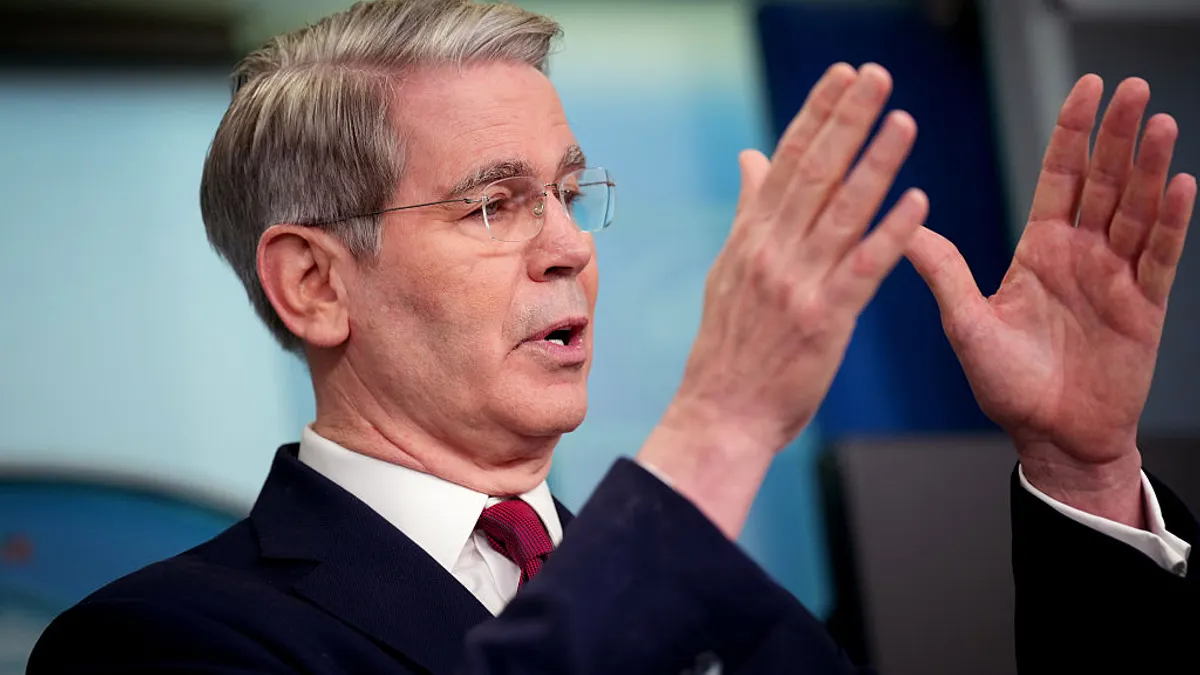When Tim Zue was on summer break from teaching high school math in 2003, he was working as an unpaid intern in the business analytics department for the Boston Red Sox and he noticed fans bunching up at certain turnstiles on game day.
Zue asked the ticketing department for any data they collected on traffic flow at Fenway Park, and detected a pattern. Fans would overwhelm the 10 turnstiles in Gate A, while leaving turnstiles in other gate areas comparatively empty. Although he had no formal job with the team, he created charts and made the case for reconfiguring the number of turnstiles at each gate and the team leadership listened. It installed 17 turnstiles in Gate A, easing traffic flow.
“I remember people thinking, ‘17 turnstiles? That’s crazy,’” Zue, CFO for the Boston Red Sox, said this week in a CFO Thought Leader Podcast. “I said, ‘Trust me, you want to have the right number of turnstiles that align with the number of fans coming in. That allows you to have the shortest average line.’ Sure enough, I made this presentation, convincing them to move the turnstiles.”
That wasn’t the only action Zue took during his summer vacation. He built a database to track fan emails so team executives could know what was bothering them, how quickly and completely employees were responding to them, and so on.
“They had 10 or 12 people that all they did all day was respond to these fan inquiries,” said Zue, an MIT engineering graduate who became a management consultant at Bain & Company after graduation. He then took a four-year detour into teaching high school math before taking the internship.
“I remember saying, ‘Well, what do you do with these letters afterwards?’” Zue said. “‘Oh, we just put them in that filing cabinet.’ ‘What happens when the filing cabinet fills up?’ ‘We just put them in off-site storage.’ ‘So, there’s no database where you track whether or not someone responded, or what the category is, or what was the follow-up? Wouldn’t it make sense to have a database you could analyze?’”
After another year of teaching, Zue was offered a paid position in the team’s business analytics department, eventually becoming the head of that department, and then, in 2015, becoming CFO, which includes oversight of IT, the analytics department, and the finance function.
The Fenway experience
The Sox were founded in 1901 as one of the original eight Major League Baseball teams. Ticket sales account for roughly half of the team's revenue, and to track that, Zue uses Tableau software, which he checks throughout the day using an app on his phone.
"There's a report that shows the tickets sold every game compared to budget and I check that report two or three times a day," he said.
When sales aren't meeting expectations, he'll reach out to the team's marketing and ticketing executives about initiating programs to help sales along.
"We have heat maps that show the areas of Fenway Park that are unsold in red and the areas that are sold in green," he said. "We try to put things in a format that is easy to digest. It's not a massive spreadsheet with 10,000 numbers; we use maps. We use coloring."
The software helps him track the team's other revenue sources: concession sales, sponsorships, TV rights, and most recently, non-baseball use of Fenway Park, a landmark in the city.
"When I got here in 2003, there had never been a concert at Fenway Park," he said. "Since 2003, we've had 75 major concerts that have generated over $50 million in revenue, in addition to high school football, college football, outdoor ice hockey, ski jumping and all sorts of things. That's been a really great growth opportunity for us."
Two sides: baseball and business
At its core, the Red Sox are an entertainment company, so all of the data Zue collects and analyzes on the business side help the team's executives stay in touch with whether fans are having a good time when they visit Fenway or watch the team on TV.
"Our product is really the experience at Fenway Park, and we want to make sure our fans are getting the best possible experience," he said. "That starts with a competitive team, so number one is making sure we invested in the baseball side of the business: player payroll and the infrastructure that supports that, making sure we can put the best possible team on the field. But just as important is that experience off the field: staffing, ushers, ticket takers, security game-day operations staff, food quality — all these different things we focus quite a bit on to make sure when people give us their hard-earned money, they leave with a smile on their face."
Zue said the company's CEO, Sam Kennedy, asked him to be CFO, even though he didn't have an accounting background, because he wanted to leverage his ability to identify metrics and create reports to identify ways to increase revenue or save costs.
"We used to have employees sign in on a sheet," he said. "Now an usher shows up for work, pulls out his phone, and he checks in on his phone. We're constantly looking for ways to use technology to make processes more efficient, which allows our employees to free their time up for what their actual core responsibilities are."
Keeping staff happy
Zue said he didn't have to make any changes to his finance team when he took over the department because it already had people in place that he could rely on to ensure the department's core accounting and finance operations functioned seamlessly.
"Like any company, we have checks and payments going out the door every day — hundreds, if not thousands, of dollars, and payments coming in," he said.
Zue said he focuses on data crunching. "When I was put in charge of the department, the integration with data analytics became stronger, and the link between these two departments became stronger," he said. "I'm biased, of course, but it has given us a firmer foundation. And that's my core business. I'm very involved in our plan to sell tickets. I talk to our heads of marketing and ticketing every day."
He also keeps tabs on the engagement of his 40 or so direct reports because if they stay motivated and challenged, they'll continue to do a good job.
"I try to stay ahead of their potential desire to do more things," he said. "One of the hardest things is to keep people happy. People are ambitious and motivated. They want to do more. They want raises, promotions, and you can't promote and give people raises every single year. So I've made it really an important priority to spend time with my staff to make sure I'm proactive about thinking of the next opportunity for people."




















